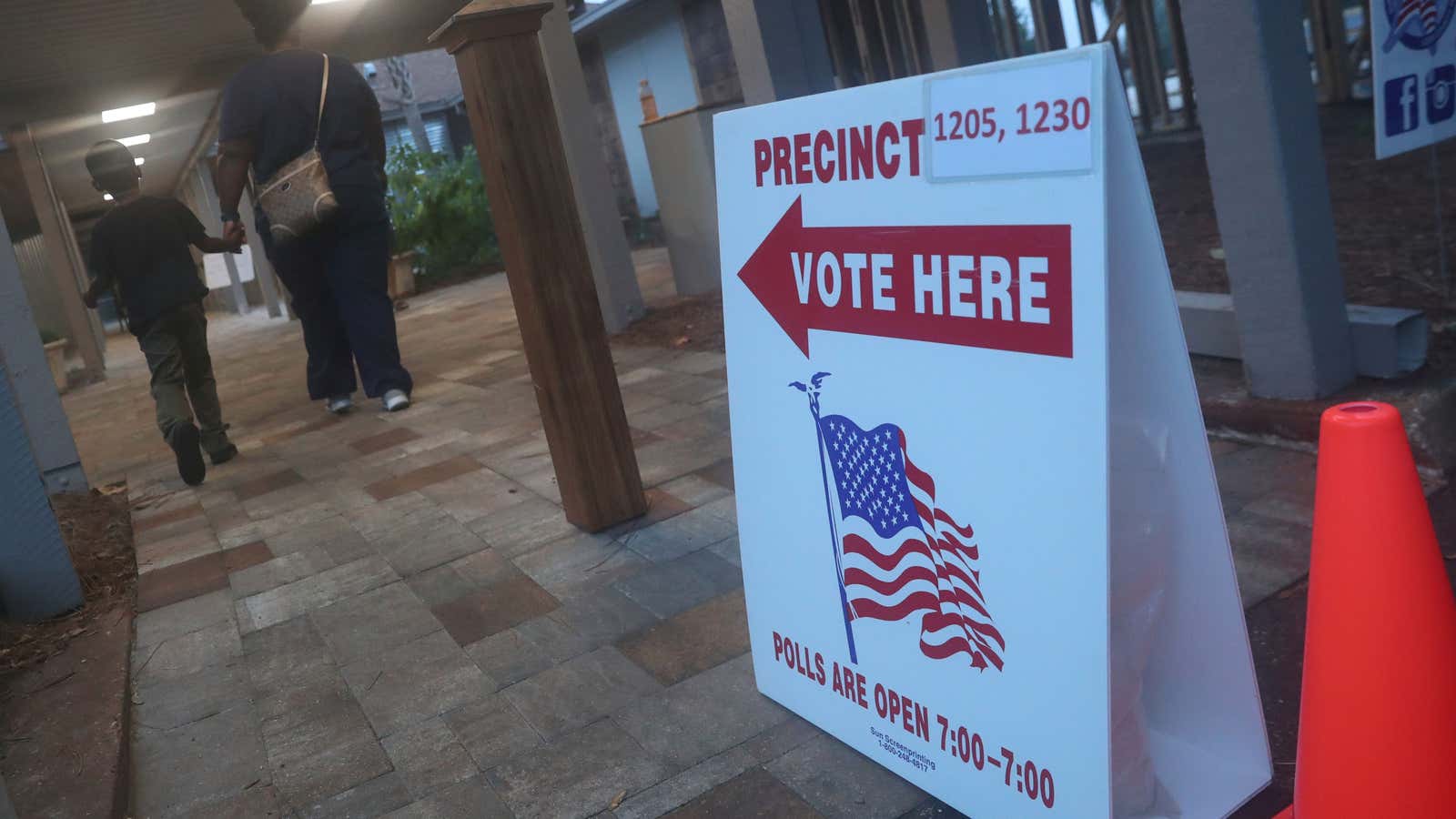The day of the US midterms is upon us, and the world is watching to see whether Democrats will be able to break Republicans’ stronghold on Congress. But voters will also be making a lot of important decisions at the state level, weighing proposed legal changes that could affect everything from reproductive rights to minimum wage. Here are a few of the most important topics on the ballots:
Medicaid
Today, voters in Idaho, Nebraska and Utah will vote on whether not to expand Medicaid to cover lower-income Americans, an option provided under the Affordable Care Act. In Montana, voters will decide whether they want to keep the expansion that legislators approved in 2015, which would be funded by a tax increase on cigarettes.
Home care and reproductive rights
Maine voters will vote on an initiative that would provide free at-home care to the elderly and people with disabilities, via a 3.8% income tax hike on households making over $128,400 a year.
Meanwhile, voters in Alabama, Oregon and West Virginia will be considering multiple initiatives that would affect women’s access to abortions. In Alabama, Amendment 2 would alter the state constitution to”recognize and support the sanctity of unborn life and the rights of unborn children, including the right to life.” Reproductive rights groups say the change would effectively give fetuses constitutional personhood.
In Oregon, Measure 106 would prohibit publicly-funded health care programs from covering abortions. And in West Virginia, Amendment 1 seeks to change the state’s constitution to say that there is nothing in it that “secures or protects a right to abortion or requires the funding of abortion.” Meanwhile, Nevada’s Question 2 could eliminate taxes on sanitary products.
Marijuana
Voters in Michigan and North Dakota will vote on whether to legalize recreational marijuana use, while in Missouri, Utah and Ohio, the drug could become legal for medical use. In Florida and Kentucky, voters will have their say on criminal penalties related to marijuana, potentially ushering in further decriminalization down the line.
Housing
The future of rent control is up to voters in California and Chicago. California’s Proposition 10 would allow communities to strengthen rent-control laws. Voters in three Chicago wards will be considering non-binding referendum on Illinois’ rent-control preemption law, which currently forbids cities from enacting rent control. A stable of cities across the country including Charlotte, North Carolina; Austin, Texas; and Portland, Oregon are considering proposals to fund more affordable housing units.
Transgender rights
In Massachusetts, voters will decide whether to repeal a 2016 statewide law prohibiting discrimination based on gender identity in places of public accommodation, like hospitals, stores, and theaters. Some 19 states currently have laws of this sort to protect transgender people, as well as many individual cities. In 2015, Houston voters overturned a comparable citywide ordinance, while in April, voters in Anchorage opted to retain theirs. In the wake of a leaked Trump administration memo (paywall) that sought to remove recognition and protections of transgender people, the outcome in Massachusetts may serve as an indicator of the broader climate on this civil rights issue.
Voting rights
Florida is one of three states that permanently blocks felons from the ballot box, affecting approximately 1.6 million people. Amendment 4 seeks to change that—and polls suggest the measure may be successful. Voters in Nevada and Michigan will consider propositions to help people to register to vote: In Michigan, Proposal 3 would permit new voters to register on election day, while in Nevada, voter registration would become opt-out.
Minimum wage
In Missouri, voters will have their say on whether to increase the minimum wage to $12 by 2023, while voters in Arkansas will decide whether to up the minimum wage to $11 by 2021.
